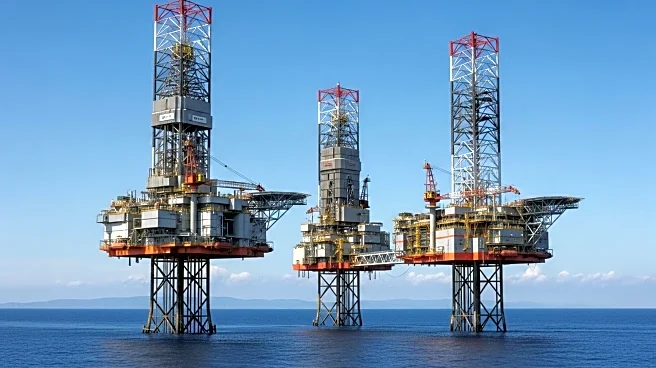What's Happening?
BP and TotalEnergies, two major European oil and gas companies, have announced significant investments in the United States. BP has approved a $5 billion offshore oil field project in the Gulf of Mexico, expected to begin production in 2030. This project is part of BP's strategy to increase its U.S. production to over 1 million barrels of oil equivalent per day by the end of the decade. Meanwhile, TotalEnergies is acquiring a 49% stake in Continental Resources' onshore gas fields in Oklahoma, aiming to increase its gas production in the U.S. These moves align with the companies' strategies to capitalize on U.S. hydrocarbon resources.
Why It's Important?
The increased investments by BP and TotalEnergies in the U.S. oil and gas sector reflect a strategic shift towards leveraging the country's abundant hydrocarbon resources. This expansion is significant as it aligns with broader industry trends of focusing on traditional energy sources amid fluctuating global oil prices. The projects are expected to enhance the companies' production capabilities and secure access to low-cost gas, which is crucial for meeting global energy demands. These developments could also have economic implications, potentially creating jobs and boosting local economies in the regions where these projects are located.
What's Next?
As BP and TotalEnergies proceed with their U.S. projects, they will likely focus on optimizing production and managing costs to ensure profitability. The companies may also explore further partnerships or acquisitions to strengthen their positions in the U.S. market. Stakeholders, including investors and local communities, will be watching closely to assess the impact of these projects on the companies' financial performance and regional economic development. Additionally, regulatory and environmental considerations will play a crucial role in shaping the execution and success of these projects.










